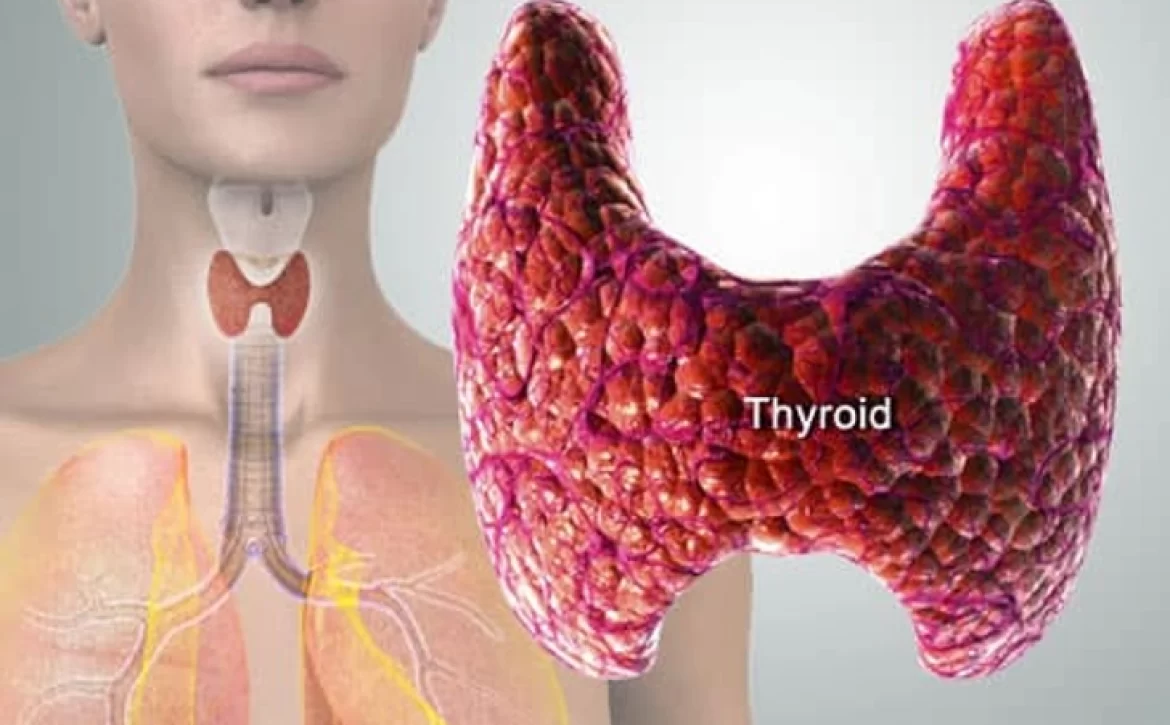Thyroid Disorders: Symptoms and Treatment Options
The thyroid gland may be small, but it plays a powerful role in maintaining your overall health. Located at the base of your neck, this butterfly-shaped gland produces hormones that regulate metabolism, energy levels, body temperature, and even mood. When your thyroid is not functioning properly, it can lead to serious health issues.
What Is the Thyroid Gland and What Does It Do?
The thyroid gland produces two main hormones: triiodothyronine (T3) and thyroxine (T4). These hormones control how your body uses energy, influencing heart rate, digestion, muscle control, and brain development.
Common Thyroid Disorders and Their Symptoms
1. Hypothyroidism (Underactive Thyroid)
Occurs when the thyroid doesn’t produce enough hormones.
Symptoms include:
- Fatigue and weakness
- Weight gain
- Depression or low mood
- Cold sensitivity
- Dry skin and thinning hair
- Constipation
- Slow heart rate
- Irregular or heavy menstrual periods
2. Hyperthyroidism (Overactive Thyroid)
Happens when the thyroid produces too much hormone.
Symptoms include:
- Weight loss despite normal or increased appetite
- Nervousness, anxiety, or irritability
- Rapid or irregular heartbeat
- Heat intolerance
- Excessive sweating
- Frequent bowel movements
- Difficulty sleeping
- Bulging eyes (Graves’ disease)
3. Goiter

An enlarged thyroid gland that may be caused by iodine deficiency, inflammation, or nodules.
Symptoms:
- Visible swelling in the neck
- Tightness in the throat
- Coughing or hoarseness
- Difficulty swallowing or breathing (in severe cases)
4. Thyroid Nodules
Lumps or abnormal growths within the thyroid gland. Most are benign, but some can be cancerous.
Symptoms:
- Often no symptoms
- Lump in the neck
- Difficulty swallowing
- Hoarseness
5. Thyroid Cancer
Although rare, thyroid cancer is usually treatable when diagnosed early.
Symptoms:
- A painless lump in the neck
- Swollen lymph nodes
- Changes in voice
- Trouble swallowing or breathing
How Are Thyroid Disorders Diagnosed?
- Doctors usually perform the following diagnostic tests:
- TSH (Thyroid Stimulating Hormone) Test – Most sensitive indicator of thyroid function
- T3 and T4 Tests – Measure hormone levels
- Thyroid Antibody Tests – Detect autoimmune thyroid disorders
- Ultrasound & Biopsy – For nodules and tumors
- Radioactive Iodine Uptake Test – Determines the cause of hyperthyroidism
Lifestyle Tips to Support Thyroid Health
- Eat iodine-rich foods (iodized salt, fish, dairy, eggs)
- Manage stress – Chronic stress can affect hormone balance
- Exercise regularly to support metabolism
- Get routine checkups, especially if you have a family history of thyroid issues
📅 When to See a Doctor
If you’re experiencing unexplained symptoms like fatigue, weight changes, or neck swelling, consult your doctor. Early detection can make treatment more effective and reduce long-term complications.
Final Thoughts
Thyroid disorders can significantly affect your quality of life, but with proper diagnosis and treatment, most are manageable. Don’t ignore persistent symptoms. A simple thyroid function test (TFT) can be the first step to getting your health back on track.
🔔 Is your thyroid in check? Book your consultation today at Sowa Healthcare and take the first step toward better health!

